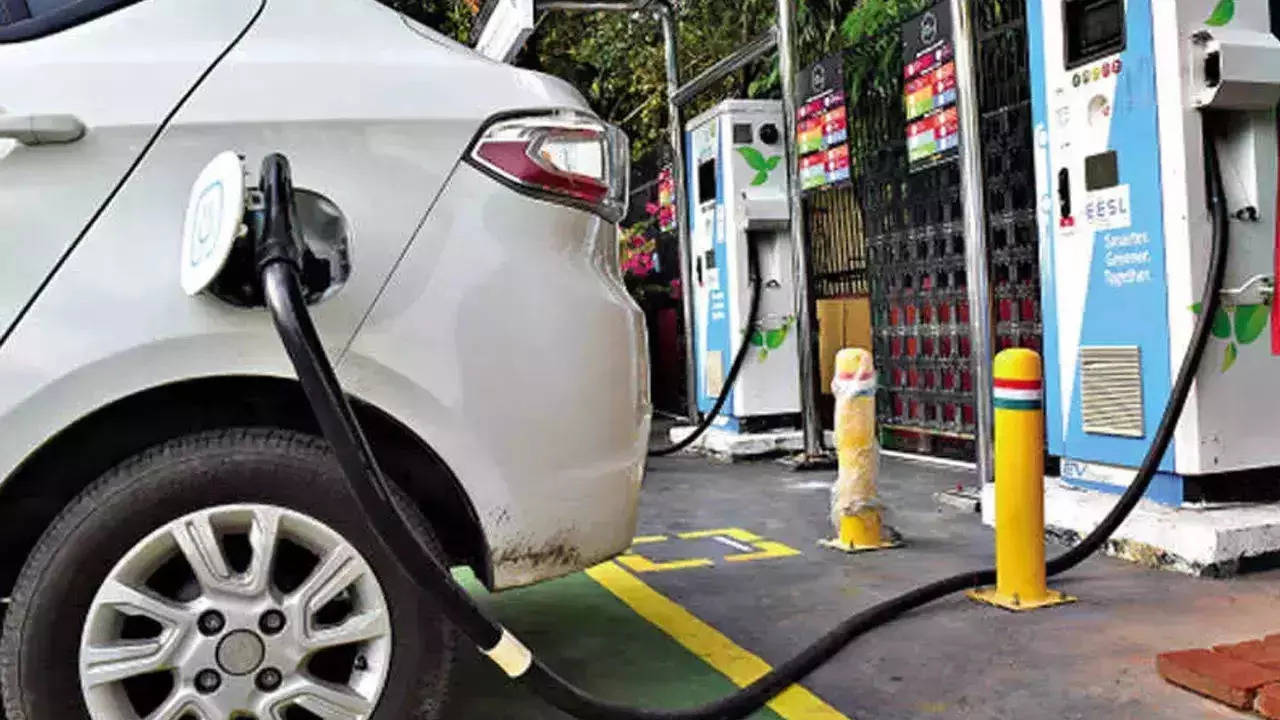BENGALURU: Stung after losing investments from major electric vehicle (EV) manufacturing companies to neighbouring Tamil Nadu, which offers far more attractive subsidies, the Karnataka govt is gearing up to revamp its electric vehicle manufacturing policy under the banner ‘Clean Mobility’.
This initiative aims to provide a renewed impetus to the EV sector in the state while also incorporating a futuristic approach.
The industries department has reportedly revised its incentives and subsidies to attract companies to establish their operations in Karnataka. A key highlight of the policy is its emphasis on fuel-agnostic technology, positioning Karnataka as a frontrunner in the clean energy automobile market.
Fuel-agnostic technology, believed to be the future of the automobile industry, allows engines to utilise low or zero carbon emission fuels such as natural gas or hydrogen.
S Selvakumar, additional chief secretary (industries), said the govt envisions a future where automobiles predominantly operate on clean energy, with a focus not limited to electric vehicles alone. He said stakeholders were included in discussions “to ensure comprehensive participation”.
Sources within the industries department say the new policy may extend incentives to consumers as well, offering subsidies on purchase of clean energy automobiles tomitigate the impact of the withdrawal of the FAME II subsidy by the central govt.
Minister MB Patil said the clean mobility policy has reached its final stages, and a draft policy has been forwarded to the finance department for approval. “We have crafted the policy with a longterm perspective for Karnataka’s development and anticipate that it would be presented to the cabinet soon. Weexpect the policy to be implemented within the next month,” Patil said.
While unveiling the draft policy in Nov 2023, Patil had promised the creation of one lakh jobs and an investment of Rs 50,000 crore over the next five years, underscoring the govt’s commitment to boosting clean energy.
Green hydrogen policy
Energy minister KJ Georgechaired a meeting to chalk out a policy to promote green hydrogen in the state. Industries minister MB Patil was also in attendance.
Green hydrogen is produced through electrolysis of water using renewable electricity. The objective of the policy is to produce at least 0.5 million tonnes per annum, catering to the domestic and export markets.
This entails attracting in-vestments that qualify under the strategic interventions for green hydrogen transition (SIGHT) under the National Green Hydrogen Mission; to foster demand for green hydrogen and its derivatives among industry and mobility sectors through fiscal incentives; and to enable employment generation through skilling programmes, as well as to enable strategic tie-ups with industry and other stakeholders.
This initiative aims to provide a renewed impetus to the EV sector in the state while also incorporating a futuristic approach.
The industries department has reportedly revised its incentives and subsidies to attract companies to establish their operations in Karnataka. A key highlight of the policy is its emphasis on fuel-agnostic technology, positioning Karnataka as a frontrunner in the clean energy automobile market.
Fuel-agnostic technology, believed to be the future of the automobile industry, allows engines to utilise low or zero carbon emission fuels such as natural gas or hydrogen.
S Selvakumar, additional chief secretary (industries), said the govt envisions a future where automobiles predominantly operate on clean energy, with a focus not limited to electric vehicles alone. He said stakeholders were included in discussions “to ensure comprehensive participation”.
Sources within the industries department say the new policy may extend incentives to consumers as well, offering subsidies on purchase of clean energy automobiles tomitigate the impact of the withdrawal of the FAME II subsidy by the central govt.
Minister MB Patil said the clean mobility policy has reached its final stages, and a draft policy has been forwarded to the finance department for approval. “We have crafted the policy with a longterm perspective for Karnataka’s development and anticipate that it would be presented to the cabinet soon. Weexpect the policy to be implemented within the next month,” Patil said.
While unveiling the draft policy in Nov 2023, Patil had promised the creation of one lakh jobs and an investment of Rs 50,000 crore over the next five years, underscoring the govt’s commitment to boosting clean energy.
Green hydrogen policy
Energy minister KJ Georgechaired a meeting to chalk out a policy to promote green hydrogen in the state. Industries minister MB Patil was also in attendance.
Green hydrogen is produced through electrolysis of water using renewable electricity. The objective of the policy is to produce at least 0.5 million tonnes per annum, catering to the domestic and export markets.
This entails attracting in-vestments that qualify under the strategic interventions for green hydrogen transition (SIGHT) under the National Green Hydrogen Mission; to foster demand for green hydrogen and its derivatives among industry and mobility sectors through fiscal incentives; and to enable employment generation through skilling programmes, as well as to enable strategic tie-ups with industry and other stakeholders.
